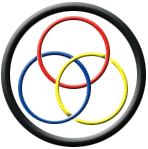









Langs Bch Halisa Int Net Anticus Aqs Chambers Art Explore Grp Milbank Gly Fine Art Noosa Key Space 3 Zane Grey
Maps | Zambia in Africa | UNHCR Zambia | Mayukwayukwa | Water Points | Plots of Land | Land Framework | Disclaimer | Copyright
Home | Summary | Climate Chg & Agri | Com & Cul | Energy | Gen Dis | Housing | ICT | Transport | WASH | Waste | Disclaimer | Copyright
These Refugee projects require Capital Equipment, Materials, Perishable Materials as well
as Human Resources to succeed
On-line minutes can be one way of promoting Sponsors' web-sites
The background to this Zambian Refugee project can be reviewed On-line here
Draft Minutes: Wed 11 Jul 2018 re Mtg 7 10 Jul 2018 REF:UNAACMgd
ZIG/ZAG: UNDP-Zambia Refugee Program - UNA
Objectives: A Review "D - General Discussion P3 & P4 41-75 Q&A - Latrines & Water"
B Review EWB 2020 Strategy - clean drinking water, sanitation
C Identify 3 key issues each for summary report
Next Meeting
Date: Tue 10 Jul 2018 Time:17:30 - 18:30
Venue: Balgowlah RSL Contact: Stephen GOULD
30 Ethel Street SAN Projects Co-ordinator
BALGOWLAH 2092 {61}(4)1600-9468
INVITEES & ATTENDEES
Peter AXTENS [PMA] Chr Y Janece WILLS [JPW] E
Gloria OMODEI [GMO] Y Carline DUFFY [CJD] Y
Jan NEILSEN [JNN] Y Nick RIDDELL [NHR] E
Tim CHENKO [TMC] E Stephen GOULD [SGG] Sec Y
Kathy REID [KCR] Y
A 17:30-17:50 - REVIEW "D - GEN DISCUSSION P3 & P4 41-75 Q&A" TOPICS
The Topics for On-line discussion by 1st year Engineering students at 30 Participating
Universities that are members of EWB are:
D General Discussion P3 - 41-60/75 questions 24 May 2016-15 Sep 2016
"Engineers Without Borders [EWB]" was founded in 2003 and in 2007 established the
EWB Challenge for 1st year Engineering students to "design creative solutions to real
world problems"
According to the most recent "EWB 2020 Strategy" published in 2015 "Over one
third of the world's population does not have access to adequate sanitation
and 650 million people live without safe drinking water"
Hence it was interesting to review this response to a question on "Latrines" as the
Mayukwayukwa re-settlement camp was established in 1966 (over 50 years ago)
D60) LATRINES - 2 replies
>#1 Thu, 09/15/2016 - 16:39 Matt Meares
>Latrines
>"Hi, I would like to ask if the pit latrines that are currently in use or being
>constructed, are they designed to be permanent? (ie once full they are emptied and
>reused) or single use (ie once full they are covered over and the slab is moved to a
>new location)?"
>
>#2 Thu, 09/15/2016 - 16:39 Matt Meares
>
>In the resettlement area
>
>#3 Tue, 09/20/2016 - 15:14 Alison Stoakley (EWB Australia)
>
>Hi Matt,
>
>At the moment there is no system in place for emptying and reusing the pit latrines
>once they are full.
>
>We will follow up whether this will be changing in the resettlement area and post
>back here shortly.
>
>Kind Regards Alison
>
As far as we could see there had been no further information or follow-up on
the Latrines system adopted by the UNHCR Refugee camps
D General Discussion P4 - 61-75 questions 20 Sep 2016-26 Oct 2016
"Engineers Without Borders [EWB]" was founded in 2003 and in 2007 established the
EWB Challenge for 1st year Engineering student to "design creative solutions to real
world problems"
According to the most recent "EWB 2020 Strategy" published in 2015 "Over one
third of the world's population does not have access to adequate sanitation
and 650 million people live without safe drinking water."
Hence it was interesting to review this response to a question on "Water Use"
>D75) WATER USE - 1 reply
>
>#1 Wed, 10/26/2016 - 23:02 Riley Williams
>Water Use
>
>Hi. Has there been any estimates made about the volume of water consumed for
>drinking/cooking each day in Mayukwayukwa per household or per person?
>
>If per person what is the size of the average household?
>
>I've seen posts about how much water is used per person but not specifically how
>much water is consumed.
>
>#2 Thu, 11/03/2016 - 17:03 Alison Stoakley (EWB Australia)
>
>Hi Riley,
>
>We don't have access to any estimates made by UNHCR specific to drinking and
>cooking, but it does sound like you've had a look through the forum and found
>information around how much water is used overall per person, which is a great
>starting point.
>
>Please use your additional research to make an estimate around a reasonable
>amount of water required per person just for cooking and drinking.
>
>For the purposes of the EWB Challenge program, we just need to see that your
>estimates and assumptions are well-reasoned and supported, so just make sure the
>logic is clear in your report.
>
>Kind Regards Alison
There are many other questions on Water use and irrigation which do not appear to
be adequately answered
This is difficult to understand for a number of reasons including:
1 The United Nations High Commissioner for Refugees [UNCHR] was founded
in 1950 hence will know about the need for accurate information relating to
refugee numbers, health and schooling
2 "Engineers without Boarders [EWB]" has been involved with Refugee Projects
over 10 years hence will know about the likely Engineering questions asked
by 1st year University graduates
3 Every trainee Engineer will ask similar questions about accurate maps, water
supply and water usage, sanitation, energy resources and transport
B 17:50-18:10 REVIEW "EWB 2020 STRATEGY
These are statements from the "EWB 2020 Strategy"
EWB Australia was founded in 2003 on the idea that engineering, along with
complementary skills sets and aligned organisations, can lift people out of poverty.
We exist to engineer a better world through four mechanisms:
A Partner - we work together with communities to build a better world
B Think - we engineer new ideas for a better world
C Learn - we curate knowledge to develop engineers for a better world
D Belong - we bring people together to innovate for a better world
This EWB 2020 States there 4 areas that EWB will focus on "so that more people
and engineers can respond to these major humanitarian challenges:
1 Appropriate Housing
It is estimated that 100 million people are homeless worldwide and as many as
1 billion people lack adequate housing.
Across Australian this is an estimated 105,237 homeless people.
2 Clean Water & Hygiene
Over one third of the world's population does not have access to adequate
sanitation and 650 million people live without safe drinking water.
3 Clean Energy
About 1.3 billion people worldwide (approximately 18% of the global population) do not
have access to electricity, and 2.6 billion people (38% of the global population) are
without clean cooking facilities.
4 Digital Access
Digital access across the Indo Pacific region is generally very poor.
This prevents people from accessing information on changing weather patterns,
current events, disasters and early warning system, as well as general information
on agriculture and markets to facilitate adaptation.
This has been summarised in the flyer "EWB - Get Involved"
C 18:10-18:30 IDENTIFY KEY ISSUES FOR SUMMARY REPORT
SGG proposed that each attendee identified the 3 issues for a Summary Report
1 eg all map reference should include Google Maps references
2 eg encourage Students to physically visit the camps and offset HECS fees
3 eg develop Pedal Power Bicycles to generate Electricity
NEXT MEETING
Date: Tue 24 Jul 2018 Time: 17:30 - 18:30
Venue: Balgowlah RSL E:
30 Ethel St P:{61}(2) 9949 5477
SEAFORTH 2092 W:
ACTION ITEMS ACTION WHO FOR WHEN
1 Review EWB 2020 Strategy On-line SGG All by F 2018/07/11
2 Identify 3 key issues to assist EWB Objectives All All by F 2018/07/20
3 Review key issues proposed All SGG 17:00 2018/07/24
Stephen GOULD
Projects Co-ordinator
SUSTAINABILITY ACTION NETWORK
E: ehn.1a3posgg@gmail.com
M: {61}(4)1600-9468
Maps | Zambia in Africa | UNHCR Zambia | Mayukwayukwa | Water Points | Plots of Land | Land Framework | Disclaimer | Copyright
Home | Summary | Climate Chg & Agri | Com & Cul | Energy | Gen Dis | Housing | ICT | Transport | WASH | Waste | Disclaimer | Copyright
<